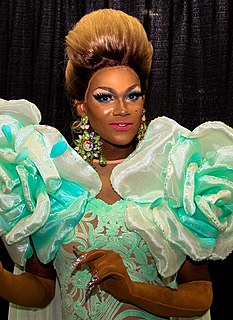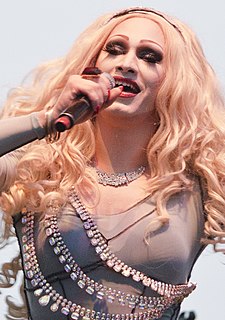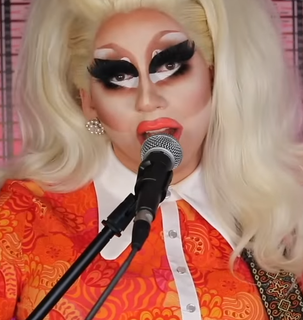A Quote by Liev Schreiber
I did some research into what was going on in terms of the sexual revolution that was happening in the '60s in the gay community and particularly in the drag world. Before the '60s, guys doing drag would dress like their mothers or iconic Hollywood actresses.
Related Quotes
At the end of the day, I just love drag so much that it's not enough for me to be a successful drag queen. I want to do right by my drag community as a whole... creating opportunities for other performers, documenting and uplifting amazing drag, and generally just contributing a lot of love and respect to our fabulous little world!
People from pre-sexual revolution and even from the 60s and the birth of the gay movement still define gay as two men or two women having sex. Our generation defines it from a more emotional standpoint. To be gay means you are drawn to the same sex. But it's a part of who you are, an identity, not an act.
I want to literally quit drag and go live in the woods somewhere and write music for my favorite female singers, like Miley Cyrus or Kacey Musgraves. I would love to be able to write music for them and hear these women I admire sing my songs. That would be like doing drag without having to get into drag myself.






























